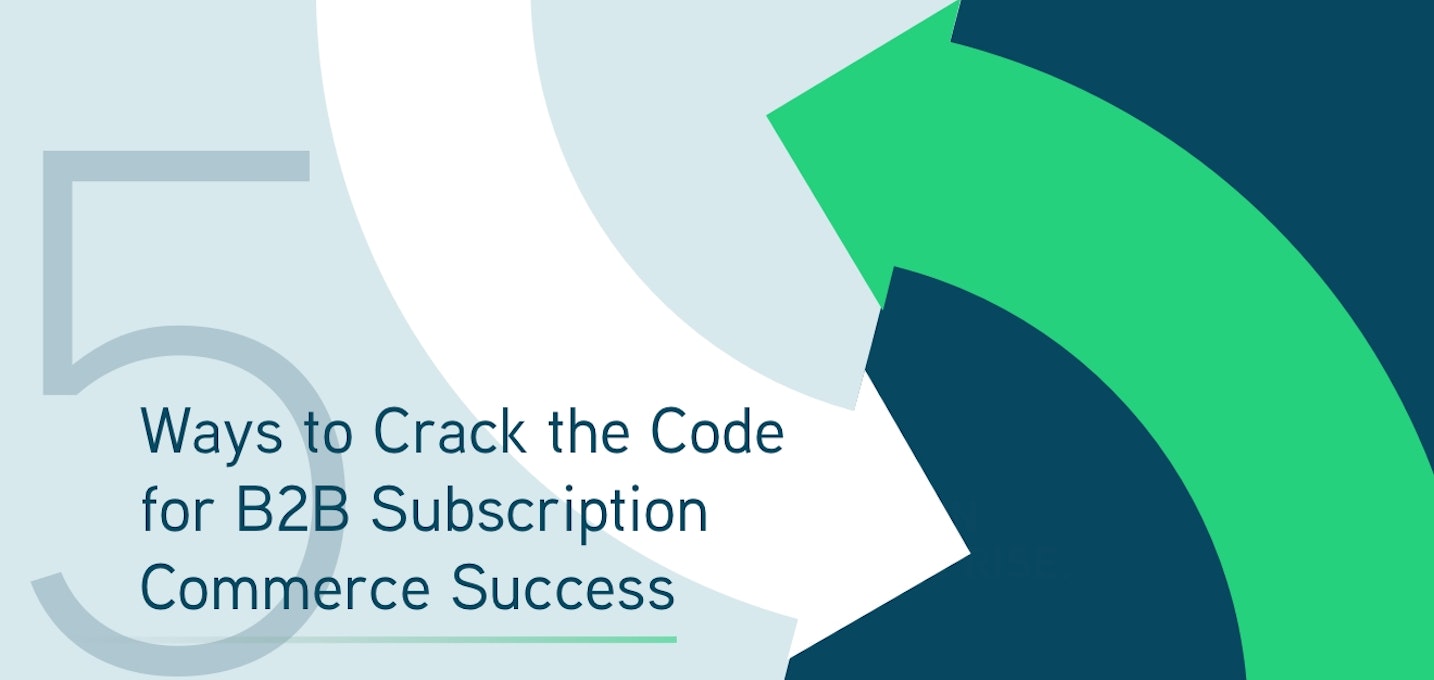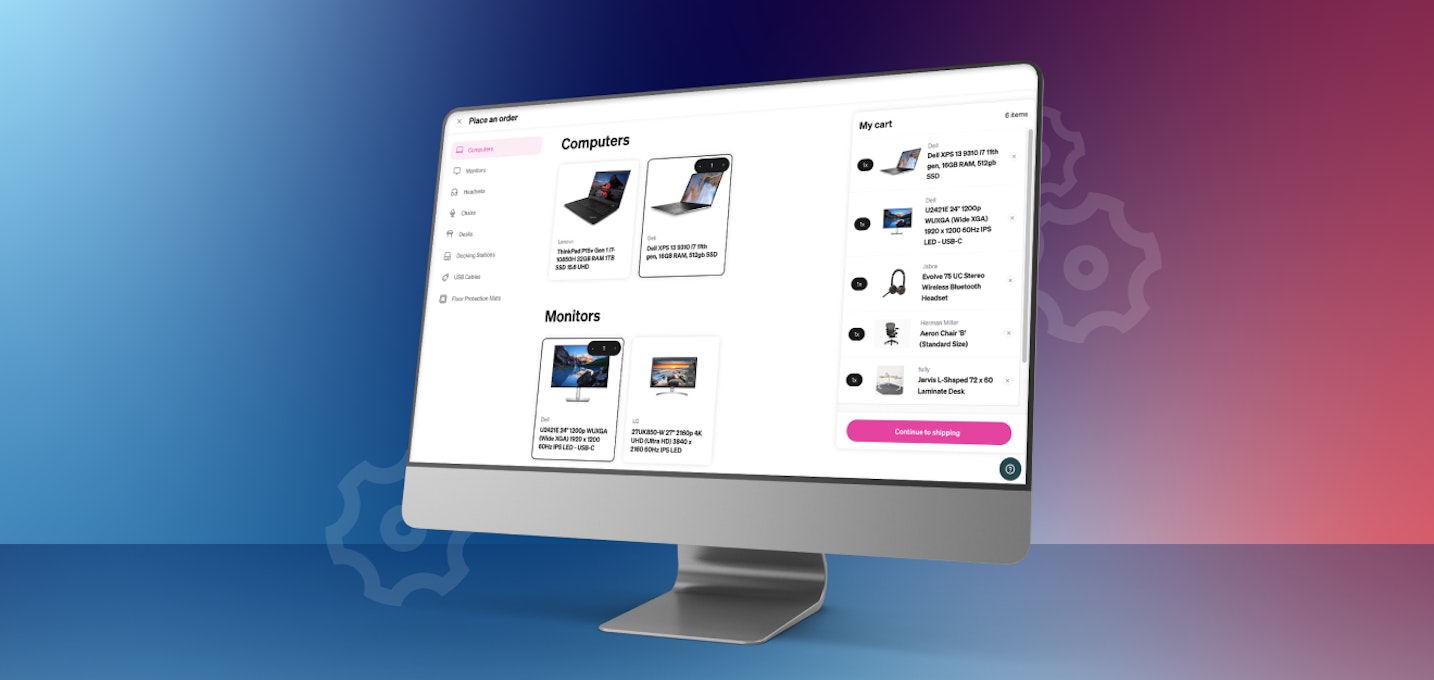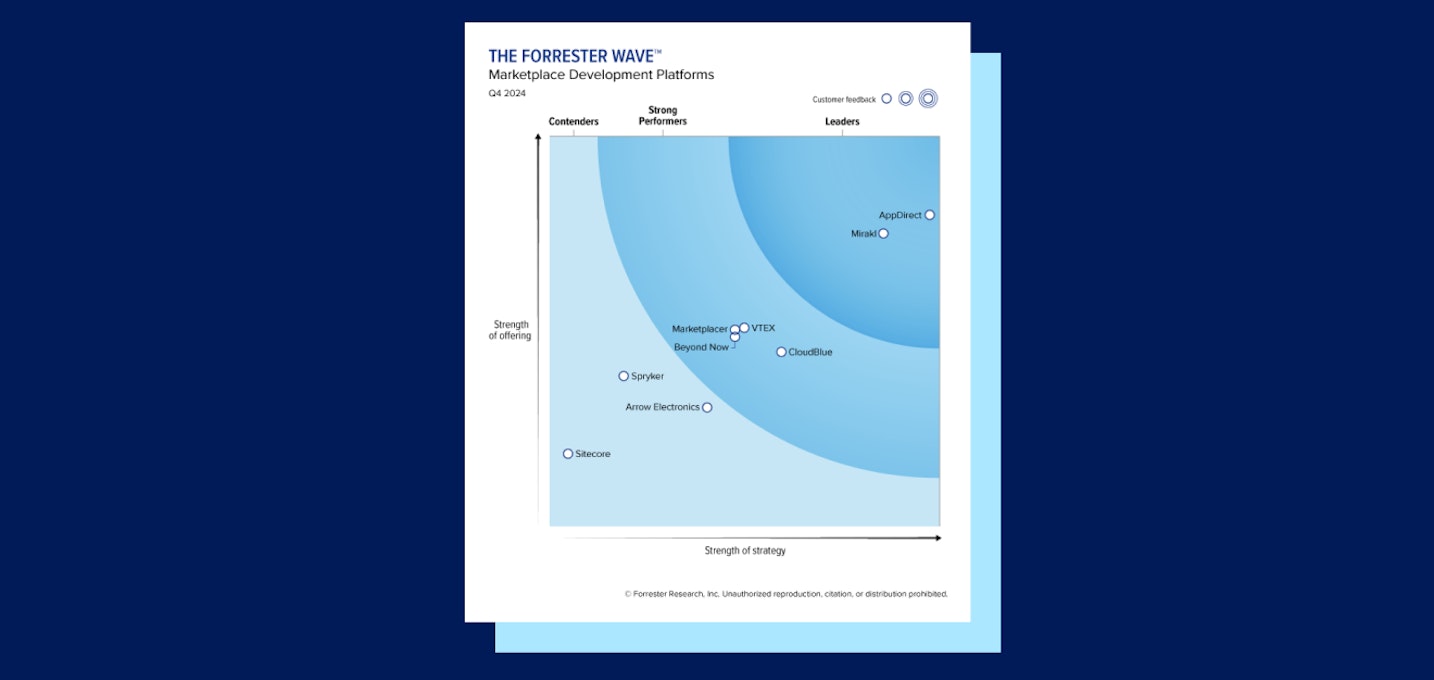Strategy & Best Practices
B2B Subscription Commerce Is on the Rise. Here's the One Thing You Need to Know.
By Ideas @ AppDirect / April 14, 2020

Today, subscription commerce is so common that many of us take it for granted. We use a credit card, for example, to set up an automated, recurring payment for a movie streaming service, and can access movies anytime, month after month—all within a few minutes.
But consumer subscriptions are just one slice of the recurring pie. On the business side, subscriptions for B2B software and services are growing at a rapid pace. In fact, the market for these "anything as a service" products—such as SaaS, IaaS, PaaS, and other solutions—is set to reach $344.3 billion by 2024, with a 24 percent CAGR.
Even that, however, doesn't capture the full picture of the new landscape for business subscriptions. Today, we are seeing the emergence of a new model for recurring transactions—B2B subscription commerce—that presents a range of new challenges. "The one thing people should understand is that B2B subscription commerce is that it’s not just a pricing model or configuring your billing system to accept recurring credit card payments," says Emanuel "Bert" Bertolin, AppDirect's Senior Vice President and General Manager of Provider Services.
He continues: "B2B subscription commerce covers all of the technology and business operations that power the sales of digital products for businesses on a recurring basis. That includes everything from sales operations, to marketing, to product delivery and deployment, to vendor management, to customer support and lifecycle management, and much more."
We recently interviewed Bert to get his take on subscriptions, where the B2B market is headed, and why B2B subscription commerce is so important in today's digital economy. Here is an edited version of our discussion.
For more insights into B2B subscription commerce, read our e-book, "Subscription Commerce 101: A Quick Guide for B2B Executives."
Q: Many people are familiar with consumer subscription commerce, but how is B2B subscription commerce different?
A: It really boils down to complexity. The software and services that power even a small-to-midsize business are typically much more complicated than a consumer would ever use.
On the technical side, there's usually a lot of set up and integrations to tie business software to different systems, not to mention migrations, user provisioning, and identity and access management. Beyond that, there are process details that people sometimes overlook. For example, contract approvals. Usually, consumers don't have a legal department to review terms of a sale. Overall, there's just a lot more friction in B2B subscription commerce.
Q: With all of the additional complexity that B2B subscription commerce presents, why is it still worthwhile?
The key word in "B2B subscription commerce" is "subscription," so it delivers all of the same benefits that are associated with a recurring model. For customers, it's a steady, predictable cost and they don't have to spend anything on op-ex. They can also experiment with new tools without having to make a huge upfront investment.
For providers, they get a steady, predictable source of revenue. And beyond that, B2B subscription commerce can provide a way for companies to differentiate. I'll give you a hypothetical. Let's say you're a camera maker, and when you first launch, you have a great product that is very advanced and offers features that no other company has. After a while, competitors will catch up and start producing cameras that are just as good—or good enough for the mass market—which will eat into your growth rates.
On the other hand, if you offer a great camera as well as a central online hub where people can subscribe to storage, editing tools, and other related services, you're giving customers something extra to show your value. The camera could even be free, since what you're selling, access to services, is ultimately more valuable than the device itself. You can be a lot more flexible and creative when your growth isn't tied to constantly coming up with new hardware features.
Q: What do companies need to look out for as they pivot to B2B subscription commerce, or scale what they have?
A: Often, when people look at trying to implement a subscription model, they think they have one big problem, which is usually billing. They can bill for physical products or one-time transactions, but they can't manage a recurring subscription.
Yes, if you can't do that, it's a problem. But a lot of companies will solve that, implement a recurring billing tool, and realize that there are a range of other problems they have to solve. The immediate problem always seems to be billing, but the challenge is much bigger than that.
Q: Can you explain some of the larger challenges companies face as they transition to B2B subscription commerce?
A: The more channels you activate, the more complicated it gets. For example, if you decide you want to launch a reseller channel, or if you already have one, how do you manage customer relationships? Does the provider—who before may have had very little contact with customers—manage them, or does the reseller?
There is also a huge shift in how you have to sell, in particular how you incentivize your sales team. With "legacy" software products, for example, sales teams are often selling big, complex software packages with hefty price tags, let's say $50,000, and you pay a 10 percent commission on that. When you switch to a monthly access fee, say $1,000, how do you compensate that salesperson? Everything needs to be recalculated.
And then take customer support. You need to make sure that customers can upgrade and downgrade subscriptions that they can manage the entire lifecycle of the commercial relationship. Before subscription commerce, maybe you had to talk to a customer once a year to get them to renew. Now you need to offer ways for them to add more seats, add more capabilities, add more products basically on demand.
Q: So what's the best advice you have for companies that are looking to implement B2B subscription commerce?
A: My advice to companies just starting out is, try things early, fail early and learn from it. Don't over invest in a plan that you are not reasonably sure will work. It needs to make sense for your market and your customers. I've seen a lot of programs that get over-engineered and over-built without any sort of validation that they're onto something that could work.
There are a lot of variables and moving parts, but the beauty of the digital space is that you can iterate pretty quickly and you can try new approaches. Software developers have figured this out. They understand you need to get your minimum viable product to market and test, test, test. The same goes for any business now that's trying to digitally transform. Find technology that can support this type of flexibility, as well as internal champions who will back your strategy as you try new things.
Read our latest e-book, "Subscription Commerce 101: A Quick Guide for B2B Executives," for more insights into B2B subscription commerce.
Ideas @ AppDirect is a leading source for trends, statistics, best practices, and other information related to the digital economy.
Related Articles

Strategy & Best Practices
5 Ways to Crack the Code for B2B Subscription Commerce Success
Is there anything left to learn about subscription commerce? The subscription model we're most familiar with today has been around for more than two d...By Ideas @ AppDirect / AppDirect / April 14, 2020

Strategy & Best Practices
Conquer Inefficient and Costly Hardware Management
Company hardware is often poorly tracked and plagued by manual processes, leading to 30% of hardware assets being lost, missing, or unaccounted for. Firstbase solves these problems with a platform that automates device management from procurement and onboarding, to offboarding and retrieval.By Denise Sarazin / AppDirect / April 7, 2025

Strategy & Best Practices
How to Choose a B2B Marketplace Platform—The Top Forrester Criteria, and How AppDirect Measures Up
What makes a B2B marketplace provider great? And how can you choose the marketplace platform that best meets our needs? Forrester evaluated and scored providers in The Forrester Wave™ Marketplace Development Platform, Q4 2024—The Nine Providers That Matter Most And How They Stack Up.By Denise Sarazin / AppDirect / March 20, 2025